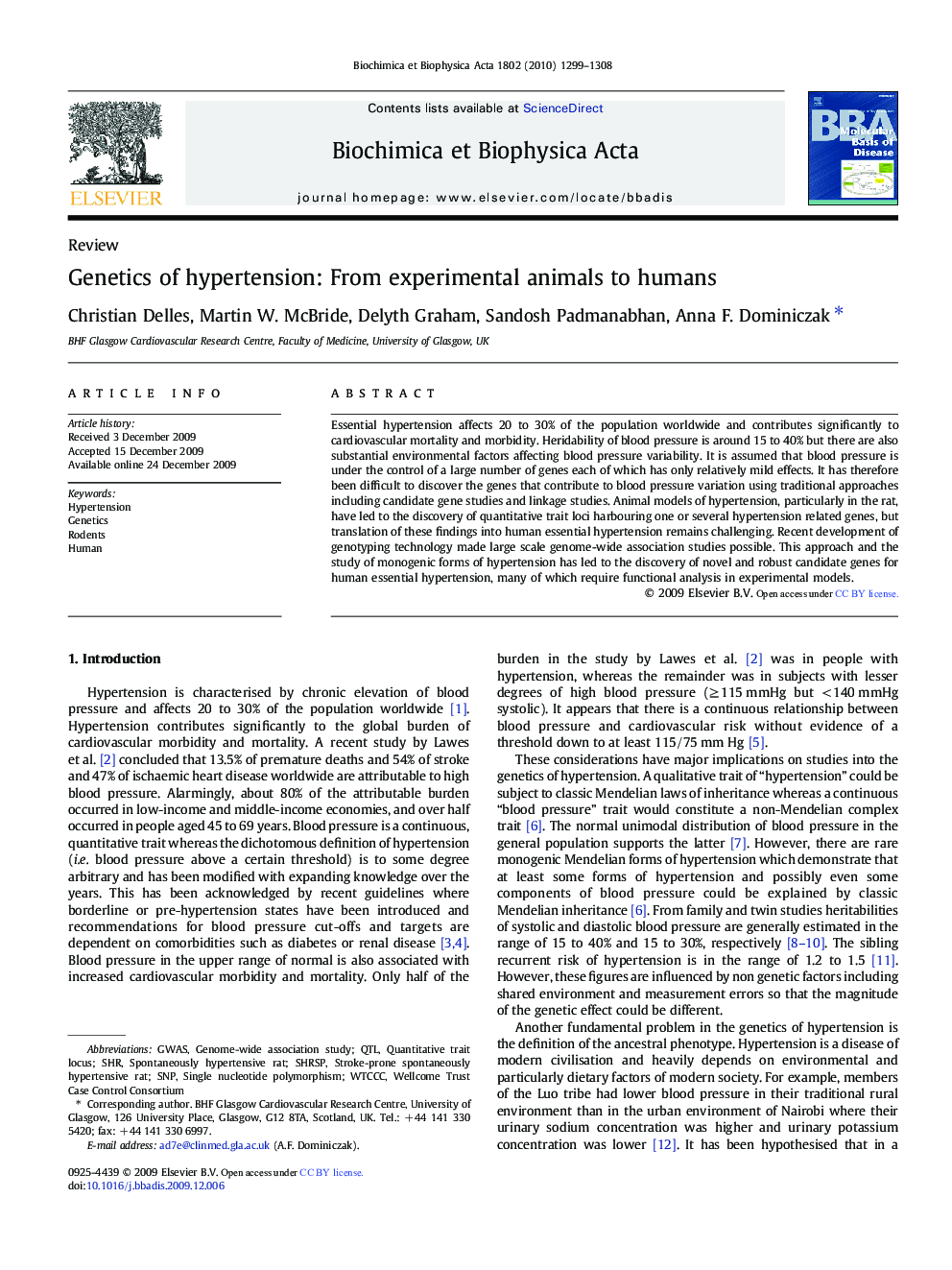| Article ID | Journal | Published Year | Pages | File Type |
|---|---|---|---|---|
| 1905249 | Biochimica et Biophysica Acta (BBA) - Molecular Basis of Disease | 2010 | 10 Pages |
Essential hypertension affects 20 to 30% of the population worldwide and contributes significantly to cardiovascular mortality and morbidity. Heridability of blood pressure is around 15 to 40% but there are also substantial environmental factors affecting blood pressure variability. It is assumed that blood pressure is under the control of a large number of genes each of which has only relatively mild effects. It has therefore been difficult to discover the genes that contribute to blood pressure variation using traditional approaches including candidate gene studies and linkage studies. Animal models of hypertension, particularly in the rat, have led to the discovery of quantitative trait loci harbouring one or several hypertension related genes, but translation of these findings into human essential hypertension remains challenging. Recent development of genotyping technology made large scale genome-wide association studies possible. This approach and the study of monogenic forms of hypertension has led to the discovery of novel and robust candidate genes for human essential hypertension, many of which require functional analysis in experimental models.
